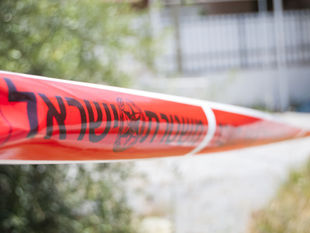

DOS Cable "Expanding Screening and Social Media Vetting for Visa Applicants"
Jun 4, 2025
3 min read
0
62
0
This post summarizes the key directives and implications outlined in the May 2025 Department of State cable titled “Action Request: the key directives and implications outlined in the May 2025 Department of State cable titled “Action Request: Expanding Screening and Social Media Vetting for Visa Applicants – Part 1.” – Part 1.”
Issued as part of the U.S. government's broader national security strategy, the cable outlines enhanced procedures for the screening and vetting of visa applicants. The main points are as follows:
1. Pause in Scheduling F, J, and M Interviews:
Per the guidance in the leaked cable, posts are instructed to not add additional interview capacity for student visas and remove any appointment slots that are not yet scheduled until DOS issues further guidance regarding the expanded social media vetting process. Appointments already scheduled can proceed under current guidelines. Further guidance is expected in “the coming days.” Until this guidance is made available, members should caution F-1, J-1, and M-1 visa applicants that appointments may not be readily available. Moreover, even if students have attended a visa interview, they may experience delay in visa processing due to administrative processing pending DOS’s implementation of the new guidance.
Expanded Screening Requirements:
Consular officers are instructed to identify visa applicants who warrant enhanced scrutiny based on potential security or immigration fraud risks. The cable provides a framework to apply additional checks beyond standard procedures.
Social Media Vetting:
A key focus of the cable is the integration of social media identifiers into the visa screening process. Consular posts are directed to collect specific social media platforms used by applicants and forward this information for further review by national security partners.
This action reflects a policy shift toward more intensive screening of visa applicants to detect threats in the visa stamping adjudication process. Consular posts are expected to apply this guidance immediately and report any challenges or resource needs back to DOS.
The Cable was issued on May 27, 2025, and as of today there was an announcement by Secretary of State Marco Rubio and a second cable leaked on May 30, 2025 (none of the cables have been confirmed by the Department of State). Secretary Rubio’s announcement directly targets Chinese nationals applying for F visas, who have ties to the Chinese Communist Party and “a new visa restriction policy that will apply to foreign nationals who are responsible for censorship of protected expression in the United States” to address foreign officials who “issue or threaten arrest warrants on U.S. citizens or U.S. residents for social media posts on American platforms while physically present on U.S. soil” or who demand “American tech platforms adopt global content moderation policies or engage in censorship activity that reaches beyond their authority and into the United States.”
The May 30 cable directs consular officers to maintain “extra vigilance and to comprehensively review and screen every visa applicant for potential security and non-security related ineligibilities including to assess whether the applicant poses a threat to U.S. national security.” The cable singles out Harvard, stating that the purpose of the new vetting instructions is “to address the acute concerns of violence and anti-Semitism at Harvard University.” Most notably, the cable points out that “lack of any online presence” or making social media accounts private “may be reflective of evasiveness and call into question the applicant’s credibility.” The cable also notes that any online presence should be reviewed, not just social media. The cable further directs that if the consular officer is not personally and completely satisfied that the applicant meets the requirements for the visa, the visa must be refused.
This post will be updated as more information is available.





